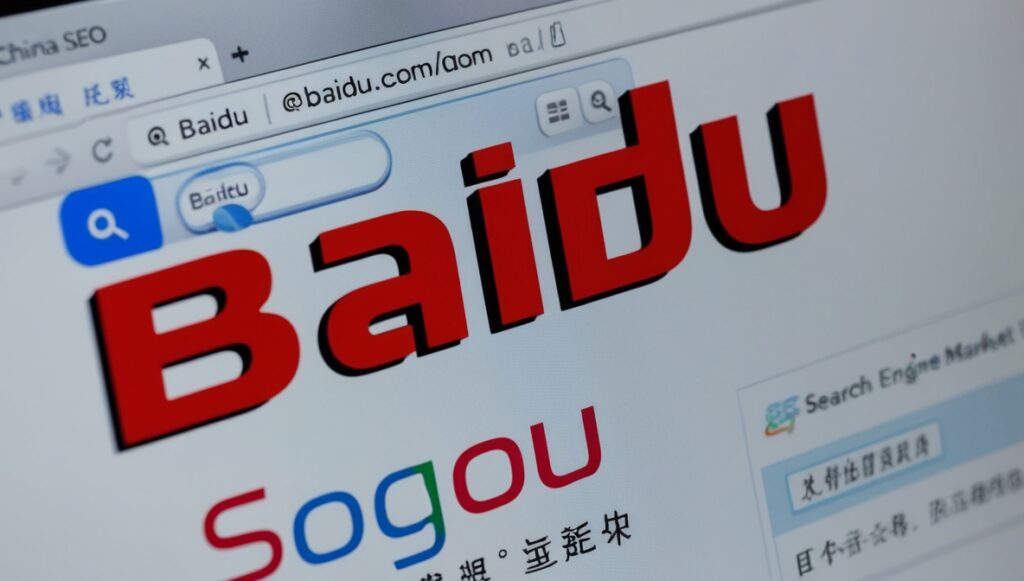
As the world’s largest digital market, China offers immense opportunities for businesses looking to expand their online presence and reach a vast audience. With over 1 billion internet users, the potential for growth is staggering. However, entering the Chinese market presents unique challenges, especially in the realm of SEO. The rules that govern search engine optimization in China are significantly different from those in Western markets. This article explores the intricacies of China SEO, why it’s essential for your business, and how you can build an effective strategy.
What is China SEO?

China SEO refers to the practice of optimizing your website and digital content for Chinese search engines, the most prominent of which is Baidu. While Google is the dominant player in much of the world, it only has a small market share in China due to strict government regulations and the presence of local competitors. Baidu controls around 70% of the search engine market in China, followed by other players like Sogou and Shenma.
Optimizing for Baidu and other Chinese search engines requires a different approach compared to Google. Key differences include the prioritization of Mandarin content, different ranking factors, and strict government censorship. Understanding and navigating these complexities is crucial for businesses looking to thrive in China’s digital landscape.
Why is China SEO Important?
- Access to a Massive Audience: China is home to the world’s largest internet user base, with more than a billion people actively engaging online. This vast pool of users presents a unique opportunity for businesses to connect with potential customers. Whether you’re a local company or an international brand, China SEO is the gateway to reaching this enormous market.
- Baidu’s Dominance: With Google out of the picture due to China’s “Great Firewall,” Baidu dominates the search engine landscape in China. Failing to optimize for Baidu means missing out on the majority of search traffic in the country. As Baidu’s algorithm is different from Google’s, understanding Baidu-specific SEO techniques is crucial to achieving high rankings.
- Local Competition: Chinese businesses have embraced digital marketing and SEO at a rapid pace. To compete in this highly competitive market, companies must invest in China SEO strategies that allow them to stand out. Without a targeted approach to SEO, foreign businesses risk being overshadowed by local competitors who have a better understanding of the digital landscape.
- Government Regulations and Censorship: One of the biggest challenges for businesses entering the Chinese market is navigating government censorship and regulations. China’s government tightly controls the information available online, and websites that don’t comply with these regulations can face penalties, including being blocked entirely. A well-planned China SEO strategy ensures your content is in line with local laws and regulations.
Key Differences Between China SEO and Global SEO

While the general principles of SEO—such as using relevant keywords, creating high-quality content, and building backlinks—apply worldwide, there are significant differences when optimizing for Chinese search engines.
1. Search Engines: Baidu vs. Google
As mentioned earlier, Google is not widely used in China due to government restrictions. Baidu is the dominant search engine, and it operates under a different set of algorithms. While Google prioritizes backlinks and website authority, Baidu focuses more on the quantity of content and the relevance to local users. Additionally, Baidu’s crawler, Baidu Spider, is less advanced than Google’s, meaning it may take longer to index and rank new content.
2. Language
For effective China SEO, content must be in Mandarin. While English content may occasionally rank on Baidu, the vast majority of users search in Mandarin, and Baidu favors websites that provide content in the local language. Businesses looking to enter the Chinese market should invest in high-quality Mandarin translations of their website and content to improve their chances of ranking.
3. Hosting Location
Baidu prefers websites that are hosted within China. Websites hosted outside of China tend to have slower load times due to the country’s strict internet regulations. Hosting your website on a Chinese server or using a Content Delivery Network (CDN) with nodes in China can help improve your site’s performance and rankings on Baidu. Additionally, you may need an ICP (Internet Content Provider) license, which is a government-issued permit allowing a website to operate in China.
4. Mobile Optimization
China is a mobile-first market, with more than 90% of internet users accessing the web via smartphones. Baidu, like Google, places a strong emphasis on mobile optimization, but it is even more critical in China, given the country’s mobile-first behavior. Ensuring your website is optimized for mobile devices is a vital component of any China SEO strategy.
5. Localized Keywords
Keyword research is just as essential for China SEO as it is for Google SEO, but the focus is on Chinese keywords. Tools like Baidu Keyword Planner can help identify relevant keywords that your target audience is using. In addition, Pinyin (the Romanization of Chinese characters) plays a significant role in Chinese keyword searches. Understanding how users search for products and services in China is critical to selecting the right keywords.
China SEO Strategies for Success
- High-Quality Mandarin Content: As Baidu favors local, relevant content, creating high-quality Mandarin content is essential. This content should be tailored to the preferences and search behaviors of Chinese users. It’s not just about translating your existing content into Mandarin but also localizing it to align with cultural nuances and regional differences.
- On-Page Optimization: Optimizing your website’s on-page elements, including title tags, meta descriptions, headers, and URLs, is crucial for China SEO. Baidu relies more heavily on on-page SEO factors than Google, so it’s important to ensure your site is fully optimized. Using relevant Chinese keywords in these elements can help improve your rankings on Baidu.
- Baidu-Friendly Technical SEO: As mentioned, Baidu’s crawler is less sophisticated than Google’s. This means technical aspects of your website, such as load times and mobile responsiveness, play an even more critical role in rankings. Ensure your website has a clean structure with easy navigation to make it easier for Baidu to crawl and index.
- Building Trust and Authority: Baidu places a high emphasis on website authority. In addition to traditional backlink strategies, consider using local Chinese platforms such as forums, local directories, and popular social media sites like WeChat and Weibo to build backlinks. Baidu also values websites that engage with Chinese social media, so developing a strong presence on these platforms can improve your rankings.
- Government Compliance: China has strict internet regulations, and failing to comply with government rules can lead to penalties, including being blacklisted from search results. Ensure your website content aligns with government regulations, and if necessary, apply for the required licenses, such as an ICP.
- Localized User Experience: Offering a localized user experience that reflects the preferences of Chinese consumers is crucial. This includes integrating popular Chinese payment methods, providing customer service in Mandarin, and ensuring your website design aligns with local tastes. Enhancing the user experience can positively impact your SEO rankings and conversion rates.
Measuring Success: China SEO Metrics

To track the success of your China SEO efforts, it’s important to monitor key performance indicators (KPIs) specific to the Chinese market. Some important metrics to consider include:
- Baidu Ranking: Check how your website ranks on Baidu for your targeted keywords.
- Organic Traffic from China: Use analytics tools to track the amount of organic traffic coming from China.
- Bounce Rate: Monitor the percentage of visitors who leave your site without taking action. A high bounce rate may indicate issues with user experience or content relevance.
- Mobile Traffic: Since the majority of users in China access the internet via mobile devices, tracking mobile traffic is essential.
- Engagement on Chinese Social Media: Assess how your content is performing on platforms like WeChat, Weibo, and Douyin.
Conclusion

Expanding into the Chinese market represents a huge growth opportunity for businesses, but success requires a targeted and well-planned China SEO strategy. Understanding the unique dynamics of China’s search engines, particularly Baidu, is essential for optimizing your website and achieving high rankings. By focusing on high-quality Mandarin content, mobile optimization, compliance with local regulations, and building trust with Chinese consumers, you can position your business for success in the world’s largest digital market.
To get started with a tailored China SEO strategy, contact Dust Digital Marketing Ltd. Our team of experts can help you navigate the complexities of Chinese search engines and optimize your website for maximum visibility and growth.

